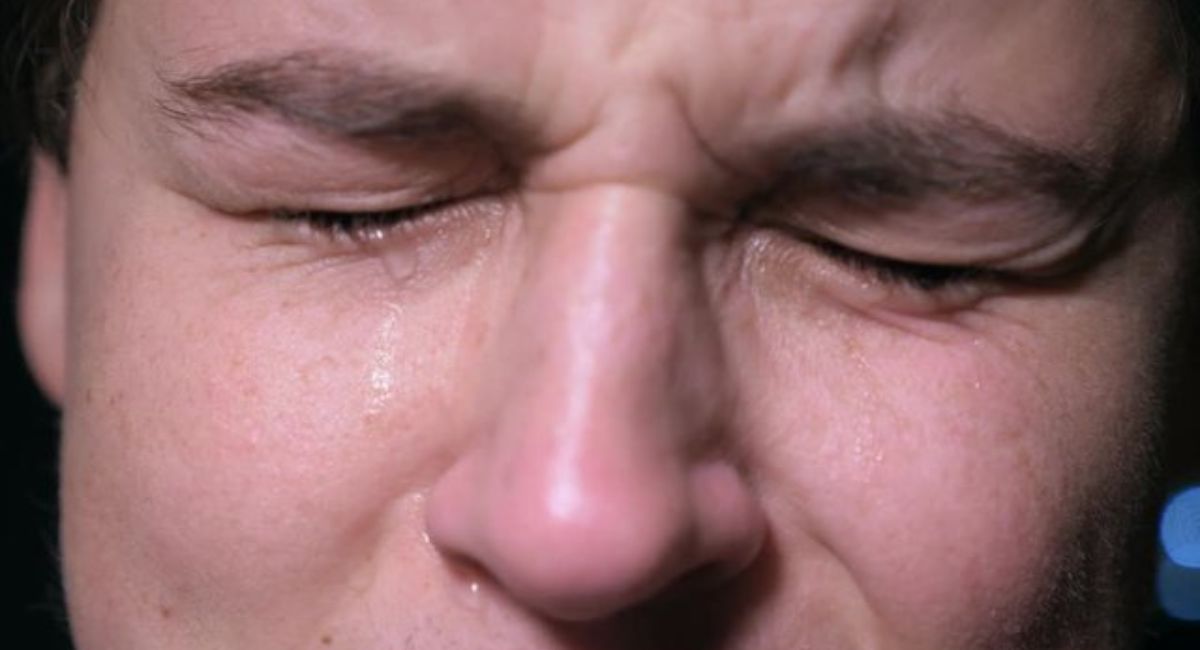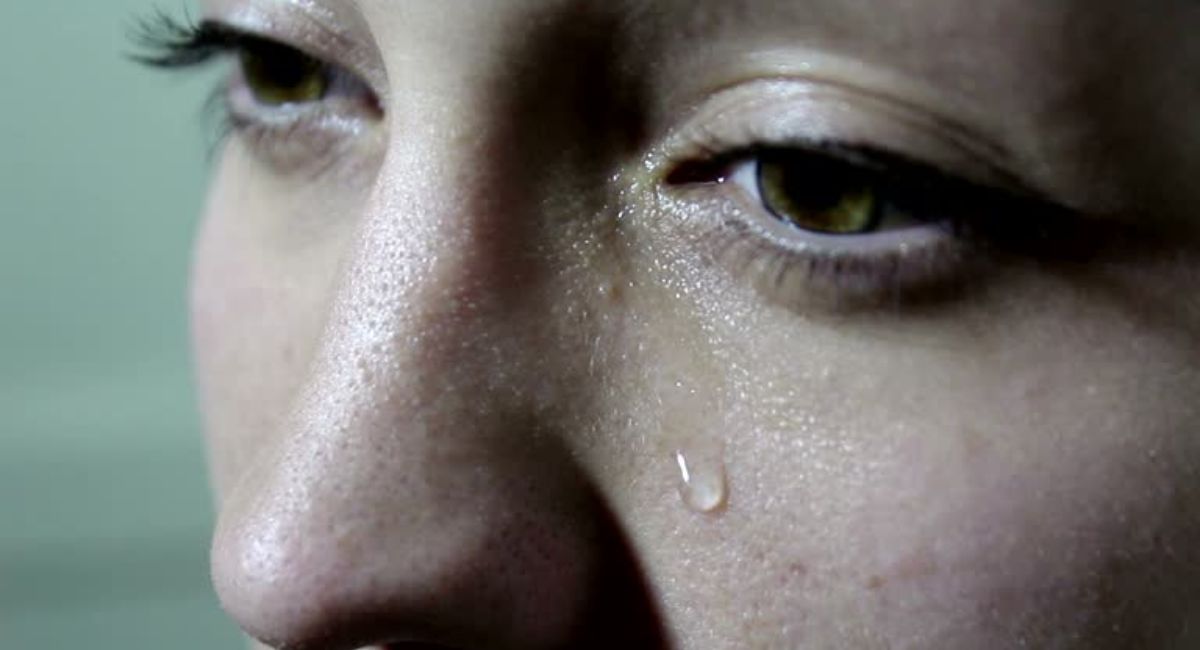Sometimes after a long cry, your head starts pounding and your eyes feel heavy, almost like you’ve been carrying the weight of the world. You wonder, why does crying make your head hurt and why the pain feels so unfair when you’re already emotional. It’s a question many people ask but rarely get a clear answer to.
This blog will walk you through the real reasons behind crying-related headaches and what they mean for your body. You’ll discover the science, simple relief methods, and when it’s time to worry about the pain. By the end, you’ll know exactly how to handle it the next time tears leave you with more than just an emotional ache.
What Happens to Your Body When You Cry?
When you cry, your body goes through an emotional stress response that affects your nervous system, muscles, and blood vessels. Your tear glands activate through signals from your brain, and as tear production and dehydration occur, your sinuses can swell and create discomfort. At the same time, your heart rate increases, and you may feel heaviness around your eyes and forehead.
Crying also leads to changes in brain chemistry and crying behavior. The act of sobbing alters neurotransmitters such as serotonin and dopamine, which regulate mood and pain perception. This is why your entire head may feel under pressure, leaving you to wonder why tears cause such physical discomfort.
The Connection Between Crying and Headaches
There is a strong relationship between crying and tension headaches because emotional outbursts contract the facial and neck muscles. This sustained tension limits blood flow, creating pressure in the head. Many people experience headaches triggered by emotions, which explains why sadness, grief, or anger can all cause pain.
Studies show that crying and blood pressure changes also occur. Elevated blood flow pushes against vessels in the brain, creating pounding sensations. So, headache after crying too much is not just in your mind—it is a real physiological reaction.

Emotional Stress: How Feelings Trigger Head Pain
Your feelings directly influence your body’s pain perception. When you cry, your body releases hormones like cortisol. This crying and cortisol release often raises inflammation and increases muscle tightness, which can worsen headaches. As a result, people experiencing frequent sadness may be more likely to report stress headaches from crying.
Emotions also disturb brain chemicals, leading to a crying and serotonin imbalance. Since serotonin regulates both mood and pain, lower levels mean stronger headaches. This explains why emotional breakdowns often feel like both an emotional and physical burden.
Does Dehydration From Tears Cause Headaches?
Although crying doesn’t remove large amounts of fluid, it can still cause mild tear production and dehydration, especially if paired with stress or lack of water intake. This small imbalance may lead to dehydration headaches after crying, where your body sends signals that it needs hydration.
Crying also dries the eyes and sinuses, creating sinus pressure from crying, which contributes to the heavy pain in your forehead and nose bridge. If you’ve ever noticed a stuffy nose and throbbing temples after tears, dehydration and sinus changes are the culprits.
Why Some People Get Migraines After Crying
Not everyone gets a standard headache. For some, emotions can trigger a crying-induced migraine. These are intense headaches often marked by nausea, light sensitivity, or blurred vision. Migraine sufferers tend to have a more sensitive nervous system, which reacts strongly to stress.
Researchers believe this link is connected to crying and serotonin imbalance, since serotonin also regulates migraines. If you already have a history of migraines, crying can act as the tipping point that activates an attack.
Other Factors That Make Crying-Induced Headaches Worse
Crying doesn’t always act alone. Lifestyle habits like lack of sleep, skipped meals, and alcohol can amplify the discomfort. These stressors, combined with crying, make it easier for your body to produce headaches triggered by emotions.
Health conditions can also increase pain. Sinus infections, high blood pressure, or even certain medications heighten your risk of crying headache causes. People with existing stress disorders are especially vulnerable, as the emotional stress response from crying overlaps with their symptoms.

How to Relieve a Headache After Crying Quickly
Relief is possible once you understand the underlying triggers. A cold compress on your forehead reduces swelling, while a warm towel relaxes muscles. Drinking water rebalances fluids, easing dehydration headaches after crying.
Another useful approach involves gentle facial massage. Targeting the temples and neck helps counter the strain of crying and tension headaches. These natural headache relief methods work well at home when you want to feel better fast.
Natural Remedies and Relaxation Techniques That Help
Healing doesn’t always come from medicine. Deep breathing lowers the emotional stress response by calming the nervous system. Herbal teas like chamomile and peppermint support home remedies for crying headaches while also promoting relaxation.
Other options include yoga stretches and aromatherapy. Lavender oil has calming properties that reduce crying and cortisol release, while light meditation practices regulate crying and serotonin imbalance. These natural headache relief methods not only reduce pain but also restore emotional balance.
When to Seek Medical Advice for Crying-Related Headaches
In most cases, a headache after crying too much is temporary. But if headaches last for more than two days, or they come with nausea, vision changes, or extreme dizziness, professional help becomes necessary. These could be signs of medical treatment for chronic headaches being needed.
Frequent crying and headaches also signal underlying issues such as depression or anxiety disorders. If you’re experiencing crying-induced migraine regularly, consulting a neurologist is a crucial step toward protecting your health.

Tips to Prevent Head Pain the Next Time You Cry
Preventing discomfort is often easier than treating it afterward. Staying hydrated helps fight dehydration headaches after crying. Rest before and after an emotional event supports recovery from crying and blood pressure changes.
Learning relaxation strategies is another long-term approach. Breathing exercises, regular sleep, and a calm environment lower the risk of stress headaches from crying. With practice, you can reduce both the frequency and intensity of future episodes.
FAQs About Why Crying Makes Your Head Hurt
Q: Why does my head hurt when I cry?
A: Crying can cause changes in blood flow and muscle tension, which often trigger headaches or pressure around the head.
Q: Is it normal to get a headache after crying?
A: Yes, many people experience this. It’s usually due to tension, dehydration, or sinus pressure from excessive tears.
Q: Can crying too much cause migraines?
A: For some people, especially those prone to migraines, crying can be a trigger because of stress and hormonal changes.
Q: How long does the headache from crying last?
A: It depends. For most, the pain fades within an hour, but if it lingers, rest, hydration, and a cool compress can help.
Q: What’s the best way to relieve a headache after crying?
A: Drink water, rest in a quiet space, use a cold pack on your forehead, and take deep breaths to relax your body.
Q: Should I be worried if my head always hurts when I cry?
A: Occasional pain is common, but if it happens every time or feels severe, it’s a good idea to talk with a doctor.
Conclusion
Crying is a deeply human act, but it often comes with the frustrating side effect of headaches. From crying and cortisol release to sinus pressure from crying, several biological and emotional processes explain why head pain follows tears. While home remedies for crying headaches and natural headache relief methods offer quick relief, persistent pain may require medical treatment for chronic headaches.
Understanding your body’s reactions helps you manage discomfort and know when to take action. The next time you ask, why do I get headaches when I cry, remember that it’s not just about emotions—it’s about the powerful connection between your mind and body.

